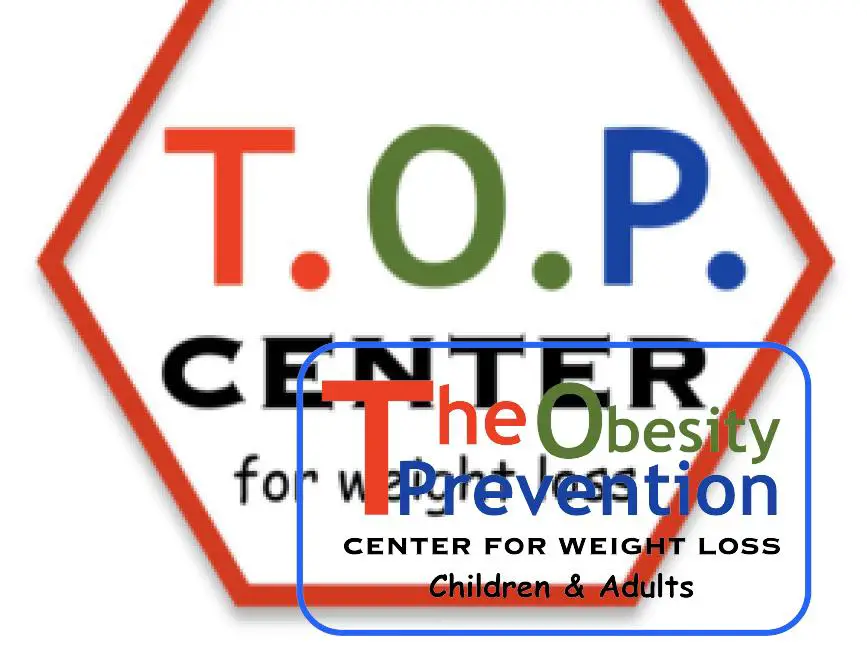At the age of forty and beyond, women confront a series of biological changes that significantly affect their metabolism, body composition, and overall health. Among these changes is a noticeable shift in weight patterns, often causing an unintended weight gain. This shift, though natural, poses health risks like heart disease and diabetes, thereby needing careful attention. This feature aims to equip readers with the essential information and convenient strategies for healthy weight loss, even during middle age. We touch upon the metabolic changes that occur past forty, practical diet adjustments you can integrate into your lifestyle, the role of different forms of exercise, as well as the impact of mental wellness. Plus, we remind you of the importance of regular check-ups and monitoring your hormone levels. By understanding and embracing these aspects, women in their forties and beyond can better navigate their weight loss journey and, more importantly, cultivate an overall healthy lifestyle.
Understanding Metabolic Changes
Understanding Metabolic Changes in Women Over 40
A woman’s body goes through significant changes when she reaches the age of 40. One significant change is in the metabolic rate. Metabolism is the process through which the body converts what you eat and drink into energy. During this complex biochemical process, calories in food and beverages are combined with oxygen to release the energy your body needs to function.
The metabolic rate is determined by several factors including age, gender, genetic predisposition, and lifestyle. The metabolic rate naturally slows down as women age, and it decreases by up to 5% every ten years beyond the age of 40. This is because the amount of lean muscle in the body generally decreases and fat increases. The change can result in weight gain if a woman continues to eat the same quantity and types of food as she did in her younger years.
Efficient Energy Processing in the Aging Body
At around 40 years of age, the body becomes less efficient at processing energy, especially if there’s no deliberate effort to maintain physical activity to keep the metabolic rate active. The metabolic rate, or the rate at which the body burns calories, begins to slow down, leading to an accumulation of fat cells, especially in the abdominal area. This can be alarming for many women, but there are ways to mitigate these changes and promote a healthier weight and overall wellness.
Balancing Hormone Levels
Another factor that affects weight and metabolism in women over 40 is hormonal imbalance. Typically, as a woman reaches perimenopause (which can occur several years before actual menopause), her levels of the hormones estrogen and progesterone begin to fluctuate. This can result in increased appetite, causing potential weight gain. Additional hormone-related changes can also lead to sleep disturbances, which can further trigger weight gain and disrupt efforts to maintain a healthy diet and exercise regimen.
Effective Weight Loss Strategies for Women Over 40
Given these changes, it’s important to focus on diet and lifestyle changes that can help stimulate metabolism and facilitate weight loss. This could include adopting a balanced diet that’s high in lean proteins, fruits, vegetables, and whole grains, and low in unhealthy fats, sugars, and processed foods. You should also consider a regular exercise routine that includes both cardio and strength training, which can help maintain muscle mass and stimulate metabolism.
In addition to these strategies, adequate sleep is crucial for individuals over 40, as poor or inadequate sleep is associated with an increased risk of obesity and metabolic disorder. It’s also helpful to manage stress, as chronic stress can lead to overeating and weight gain. Lastly, regular check-ups with a health professional can help keep track of hormone levels and detect any potential issues that may interfere with weight loss efforts.
Understanding the metabolic changes that occur in women over 40 is instrumental in devising an effective weight loss strategy. This involves embracing a balanced diet and lifestyle that counteract the effects of a slowing metabolism and hormonal changes, putting mental and physical wellbeing at the forefront.

Diet Modifications
Implementing Diet Modifications for Sustainable Weight Loss
Embarking on effective diet modifications, it becomes pivotal for women over 40 to focus on consuming fewer calories without forgoing critical nutrients. This entails cutting back on processed foods, sweetened beverages, and foods high in fat. Instead, choosing whole grains, lean proteins, fruits, vegetables, and healthy fats is advisable. The goal is to consume a wide array of nutrient-rich foods that facilitate weight management and promote overall health.
Calorie Intake and Control
Caloric needs vary for every individual and it generally decreases with age due to the natural loss of muscle mass. As a woman hits her 40s, she might need less calories than in her 30s. However, to ensure sufficient nutrient intake, it’s recommended to consume a minimum of 1,200 calories per day for women unless under medical supervision. It’s important to make these calories count by choosing nutrient-dense foods over empty-calorie food items.
Importance of Essential Nutrients
Women over 40 should ensure their diet is rich in essential nutrients. This includes dietary fiber, Vitamin D, Calcium, and Potassium. Foods rich in these essential nutrients can be integral in promoting heart health, bone health, and maintaining healthy blood pressure levels. Additionally, adequate protein intake is necessary for preserving muscle mass, an inherent challenge for aging women.
Balanced Meal Planning Strategies
Planning meals and snacks is an effective way to maintain a healthy diet. Start by planning weekly menus, incorporating whole foods, vegetables, lean proteins, and whole grains into each meal. It’s also useful to prepare meals ahead of time to resist the temptation of unhealthy, convenient options. Also, consider portion control; using smaller plates and bowls can help manage serving sizes, aiding weight loss without drastic diet changes.
Managing Menopause Symptoms to Prevent Weight Gain
As women enter their 40s and 50s, they will likely experience menopause, which can often be accompanied by weight gain due to hormone changes, loss of muscle mass, and lifestyle factors. Moreover, this age-related weight gain may lead to increased risk of certain types of cancer, insulin resistance, and heart disease.
To manage menopausal weight gain, a combined approach of balanced diet, regular exercise and healthier lifestyle changes is recommended. Consuming foods high in phytoestrogen such as Soy, Flaxseeds, Berries, Peaches, and Tofu can also help balance hormones naturally.
Incorporating holistic approaches, like stress management and adequate sleep, play a part in effectively managing weight as well. Chronic stress can lead to overeating or unhealthy food choices and poor sleep is linked to weight gain. Thus, focusing on overall wellbeing is as important as diet and exercise in achieving desired weight loss goals for women over 40.
Conclusion
Effective weight loss in women over 40 involves a comprehensive strategy. Key components include a reduction in calorie intake, a focus on nutritious eating, and a balanced diet. It’s also vital to incorporate regular exercise, establish good sleep routines, and manage stress levels. Additionally, addressing menopause-related symptoms with the guidance of a healthcare provider is essential for maintaining a healthy weight. However, it’s crucial to remember that each individual’s journey is unique, and the most effective strategies vary from person to person. Recognizing this can help establish successful, long-term weight management.

Fitness and Exercise
The Role of Exercise in Weight Loss for Women Over 40
Physical activity plays a pivotal role in weight loss strategies for women over 40. Due to metabolic slowdown, muscle mass reduction, and hormonal changes that can increase fat storage — especially around the midsection — regular exercise is crucial. Exercise not only combats these changes but also promotes a healthy weight and overall well-being. Therefore, sustaining regular physical movement is key in the journey towards achieving and maintaining a healthy body weight after 40.
Strength Training for Metabolism Boost
One of the most effective forms of exercise for weight loss after 40 is strength training. It helps to maintain or even increase lean muscle mass, which naturally decreases with age. More muscle mass means a faster metabolism, which aids in burning more calories throughout the day. Besides weight loss, strength training also improves bone density, which is important for women above 40 given they are at a higher risk of osteoporosis.
Cardiovascular Exercise: Essential for Fat Burning
Cardiovascular, or aerobic, exercise is another important piece of the weight loss puzzle. It can be anything from brisk walking or jogging to cycling or swimming. The key is to elevate heart rate and maintain the elevated state for a certain duration – typically 30 minutes or more. This helps to burn stored fats and consequently lose weight. Furthermore, regular cardio exercise is also beneficial for heart health and stamina.
Yoga for Core Strength and Toning
While it might not result in significant weight loss as cardio or strength training, yoga can still be a beneficial part of a balanced exercise regime. It helps to strengthen and tone muscles, especially in the core, and can reduce stress levels which is critical as stress can often lead to overeating.
Incorporating Exercise into a Daily Routine
For women over 40, balancing work, home and personal life might leave little time for a dedicated workout regimen. However, there are numerous ways to incorporate physical activity into daily routines. Brief exercise breaks during work like a quick exercise routine or a brisk walk, taking the stairs instead of the elevator, parking a bit farther away from the shopping mall or office to include a short walk – every small step counts.
Another useful tip is to choose a form of exercise that is enjoyable. Doing something fun is a great motivation to continue exercising. Be it dance classes, hiking or group exercises, picking an activity that brings joy can contribute significantly to the weight loss journey.
Unlocking the Power of Consistency and Patience in Weight Loss Journey
Consistent and patient are two paramount secrets to effective weight loss for women over 40. Keeping up with a regular workout routine not only fuels the body’s metabolism geared towards burning calories but also ensures a steadier, more sustainable pace towards achieving weight loss goals. Post 40, it’s natural to experience slower progress in weight reduction compared to your younger years, but remember, the tortoise wins the race, not the hare.
Bear in mind that it’s always a wise move to consult with a healthcare provider before diving into any new fitness routine. For women above 40, this step guarantees that the proposed physical activities align perfectly with personal health conditions and fitness levels.

Mental Wellness and Mindful Eating
The Role of Mindful Eating in Achieving Weight Loss Goals
The concept of mindful eating is traced back to Buddhist teachings and has found its way to modern weight loss methods. The practice encourages being completely present and intentionally enjoying the food on your plate while using your body’s cues of hunger and fullness as a guide to controlling your meals’ when, what, and how much. By heightening your awareness of eating habits, mindful eating lets you distinguish between physical hunger and emotional cravings and efficiently helps in managing portions.
Women over 40 can seamlessly merge mindful eating into their weight loss plan by focusing on small steps like chewing food thoroughly, eliminating distractions during meals, and listening attentively to one’s hunger and satiety signals. These practices lead to mindful consumption, fostering a healthier and more respectful relationship with food, setting a firm foundation for long-term weight management success.
The Power of Mental Wellness in Weight Loss
Mental wellness plays a critical role in weight loss for women over 40. Many women struggle with body image and self-esteem issues, and these feelings can impede their weight loss journey. By cultivating a positive attitude towards oneself, embracing all shapes and sizes, and focusing on health rather than aesthetics, women can foster better mental health and significantly improve their chances of success with weight loss.
Creating a healthy mindset also involves setting realistic goals. Small, attainable targets can help maintain motivation, and celebrating these small wins helps in boosting confidence. Understanding that weight loss is a journey, not a destination, can help maintain a healthier mindset during this process.
Managing Stress for Effective Weight Loss
Stress often leads to emotional eating, which can sabotage weight loss efforts. Many women over 40 are faced with multiple stress-inducing situations such as work pressures, household chores, caregiving, and menopausal symptoms. Managing stress is therefore vital in the weight loss journey. Methods such as deep breathing exercises, yoga, meditation, and regular physical activity can significantly reduce stress levels.
The Connection Between Sleep and Weight Loss
Quality sleep is often overlooked, but it’s one of the most critical factors in weight loss, especially for women over 40. When you get enough sleep, your body can effectively regulate ghrelin and leptin, the hormones that control hunger and satiety. Lack of sleep can disrupt these hormones’ balance, leading to increased hunger and resulting in overeating. Creating a regular sleep schedule and improving sleep hygiene – such as creating a dark and quiet environment – can support a more conducive atmosphere for weight loss.
The journey towards effective weight loss for women over 40 begins with honing a balanced dietary regimen, engaging in regular physical activity, practicing mindful eating, managing stress, and prioritizing sleep. These elements form a comprehensive and sustainable blueprint for healthy weight management in this demographic. The importance of mental wellness in this process cannot be downplayed as it plays a vital part in ensuring far-reaching and enduring results.

Medical Check-ups and Regular Follow-ups
Essential Role of Regular Health Assessments
Another important piece of the weight loss puzzle for women over 40 is steady emphasis on regular health screenings and medical check-ups. These interventions are crucial to preserving long-term health and detecting potential issues early on. By identifying potential backend complications that can impede weight loss, such as hormonal imbalances or metabolic challenges, these check-ups expedite prompt and effective remediation. They ultimately enable women over 40 to seamlessly sail through their weight loss journey.
Hormone Level Monitoring for Women over 40
One crucial aspect of these medical check-ups is hormone level monitoring. Hormone levels can drastically affect a woman’s body and her ability to lose weight. Key hormones like estrogen, progesterone, cortisol, insulin, and thyroid hormones play an instrumental role in weight regulation, energy use, and fat storage.
Estrogen, progesterone, and testosterone are three hormones that generally decline as women age. This decline can lead to weight gain, especially around the abdomen. Additionally, the stress hormone cortisol can cause weight gain when consistently elevated, and insulin plays a critical role in regulating blood sugar levels, affecting your body’s ability to lose weight.
Monitoring these hormone levels can offer insights into potential root causes of weight struggles, guiding the development of a personalised weight loss plan. Any detected imbalances can be treated, and health professionals can provide dietary advice or other strategies to help manage hormone levels and boost weight loss.
The Effect of Thyroid Conditions on Weight Gain
Thyroid conditions, particularly hypothyroidism, are quite common in women over the age of 40 and contribute significantly to unexplained weight gain. Underactive thyroid or hypothyroidism slows down the metabolism, thereby causing weight gain. Regular thyroid screening is an essential part of medical check-ups for women over 40 since undiagnosed thyroid conditions can make it challenging to lose weight.
Insulin Resistance and Weight Loss
Insulin resistance is another common health condition effectively identified through regular medical checkups. When cells become insulin resistant, they can’t absorb glucose from the bloodstream properly. This can cause a buildup of glucose levels in the blood and lead to weight gain or difficulty losing weight.
Women over 40 who struggle to lose weight, despite a healthy diet and regular exercise, might be experiencing insulin resistance. If left unattended, insulin resistance can lead to prediabetes, type 2 diabetes, heart disease, and a host of other serious health problems.
Regular check-ups, including monitoring of glucose and insulin levels, can help identify insulin resistance early and start necessary medical intervention. Lifestyle changes, medication, and weight loss can all help manage this condition.
Overall, regular medical check-ups can help women over 40 uncover and address underlying health conditions that might be impeding weight loss.
It’s crucial to remember that individual bodies respond differently to diet and exercise, and this couldn’t be more accurate than in women over 40. Proper medical guidance is paramount to identifying personal health challenges and finding suitable methods that can accelerate healthy weight loss. Regular screenings and hormone level checks can help women stay proactive and make informed decisions about their health.

As we delve into the golden age, knowing our bodies’ terrain, how it changes, and how to navigate it becomes essential for leading a healthier life. Armed with an understanding of our metabolisms, a balanced and nutritious diet, a commitment to regular exercise, and an approach centered around mental wellness and mindfulness, we have the tools to effectively manage weight gain after forty. Not to forget, remember to prioritize regular health check-ups that monitor hormone levels and look out for conditions that can act as a speed bump in your weight loss journey. Therefore, weight loss and health management, for women over forty, is not just about dieting or exercising– it’s a comprehensive wellbeing package we give to ourselves!
Thank you for reading this post, don't forget to subscribe to our free newsletter
!